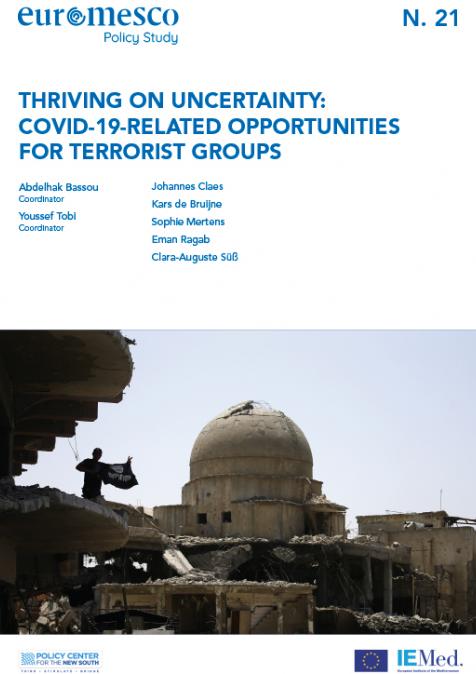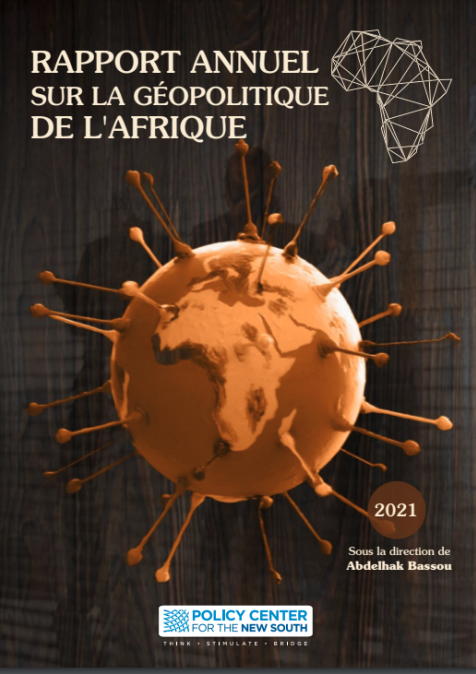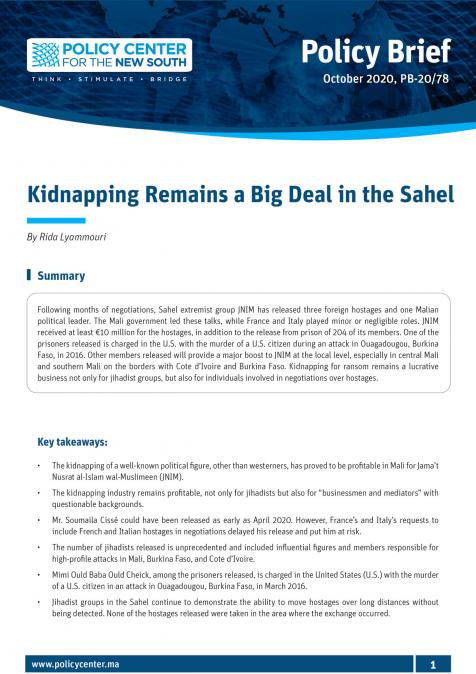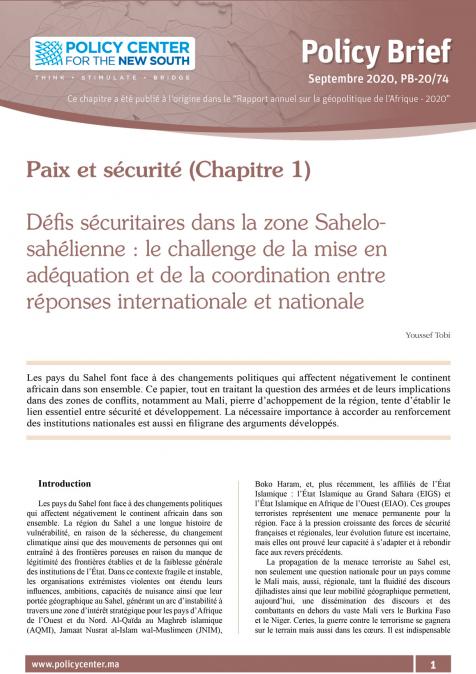In 2024, Africa’s sub-regional landscape reflects deepening tensions between normative commitments to regional integration and the emergence of competing political and security alignments. From institutional paralysis to political withdrawals, the coherence of Africa’s regional blocs is being tested. How are regional groupings adapting to these shifts, and what do current developments reveal about the state of regionalism across the continent? This panel will assess the evolution of Africa’s sub-regional orders, focusing on cases where fragmentation has become increasingly visible, notably in the rupture between the Alliance of Sahel States (AES) and ECOWAS. It will explore whether Africa’s regional architectures can accommodate internal dissent without losing strategic relevance, and how competing political visions and external influences are shaping new dynamics of cooperation—or disintegration. Can regional blocs maintain their role as engines of integration and stability, or are we witnessing a drift toward selective alignments and ad hoc diplomacy?
RELATED CONTENT
-
The Maghreb’s Outlook Towards the Sahel: An analysis of Morocco, Algeria, and Mauritania standpointsNihal El Mquirmi & Noamane CherkaouiOctober 22, 2021Although the Sahel has become more prominent in policymaking circles because of its strategic importance and the urgent nature of the dangers that have become rife in the region, countrie ...
-
Nihal El Mquirmi & Alain Antil (IFRI)October 15, 2021La bande sahélo-saharienne connaît, depuis quelques années, une instabilité liée à plusieurs facteurs: le terrorisme, les effets du changement climatique, les tensions ethniques et commun ...
-
 AuthorsSeptember 24, 2021In July 2021, the United Nations issued a condemnation against the “dramatic rise” in attacks against “descent-based slaves” in Mali, calling the violence “unacceptable”[i]. The statement was in response to a tragic episode in the eastern region of Kayes, where landowners using machetes and rifles assaulted a group of indentured laborers to prevent them working on the landowners’ fields. Tomoya Okobata, the UN's Special Rapporteur on Contemporary Forms ...
AuthorsSeptember 24, 2021In July 2021, the United Nations issued a condemnation against the “dramatic rise” in attacks against “descent-based slaves” in Mali, calling the violence “unacceptable”[i]. The statement was in response to a tragic episode in the eastern region of Kayes, where landowners using machetes and rifles assaulted a group of indentured laborers to prevent them working on the landowners’ fields. Tomoya Okobata, the UN's Special Rapporteur on Contemporary Forms ... -
AuthorsJohannes ClaesKars de BruijneSophie MertensEman RagabClara-Auguste SüßSeptember 20, 2021The COVID-19 pandemic has had a cataclysmic impact on all aspects of the functioning of our world. The relevance of the possibility of the spread of a global virus with the spread of terrorism is not immediately obvious as it is difficult for a direct causal link to be scientifically established. However, taking into consideration how state responses and pre-existing socioeconomic grievances can be impacted by the COVID-19 pandemic can lead to innovative findings on how terrorist gr ...
-
AuthorsSous la direction deJune 23, 2021Cette édition du Rapport géopolitique de l’Afrique, la quatrième, s’inscrit dans la droite ligne de la philosophie et de l’esprit du Policy Center for the New South, qui milite pour une Afrique partie intégrante du Sud global et acteur, en devenir, dans les affaires mondiales. L’Afrique comme continent et comme espace est le théâtre où se déploient les actions des Africains pour réagir et interagir avec les conjonctures internationales, et l’Afrique comme populations et institutions ...
-
 AuthorsMay 4, 2021The Sahelian states of Niger, Mali, and Burkina Faso continue to face unprecedented violence arising from multidimensional conflicts. According to the Africa Center for Strategic Studies (2019), “the Sahel has experienced the most rapid increase in activity by militant groups of any region in Africa in recent years. Violent events involving extremist groups in the region have doubled every year since 2015”. In addition to the presence of multiple violent extremist organizations (VEO ...
AuthorsMay 4, 2021The Sahelian states of Niger, Mali, and Burkina Faso continue to face unprecedented violence arising from multidimensional conflicts. According to the Africa Center for Strategic Studies (2019), “the Sahel has experienced the most rapid increase in activity by militant groups of any region in Africa in recent years. Violent events involving extremist groups in the region have doubled every year since 2015”. In addition to the presence of multiple violent extremist organizations (VEO ... -
 AuthorsSabine CessouJanuary 4, 2021Mali, Niger, Burkina Faso… L’insécurité fait tache d’huile au Sahel, menaçant de s’étendre aux pays du Golfe de Guinée. Le terrorisme a entraîné la formation de milices d’auto-défense communautaires, et ainsi créé des « friches » sécuritaires dans tout le Sahel, du Bassin du lac Tchad à la région du Liptako-Gourma. Les budgets consacrés à la défense augmentent, contrairement à ceux qui soutiennent le capital humain, santé et éducation. Dans un contexte de croissance démogr ...
AuthorsSabine CessouJanuary 4, 2021Mali, Niger, Burkina Faso… L’insécurité fait tache d’huile au Sahel, menaçant de s’étendre aux pays du Golfe de Guinée. Le terrorisme a entraîné la formation de milices d’auto-défense communautaires, et ainsi créé des « friches » sécuritaires dans tout le Sahel, du Bassin du lac Tchad à la région du Liptako-Gourma. Les budgets consacrés à la défense augmentent, contrairement à ceux qui soutiennent le capital humain, santé et éducation. Dans un contexte de croissance démogr ... -
December 16, 2020President Trump may not enact his threatened US drawdown of troops from the Sahel, but President Biden will still face pressure to end America’s “forever wars” and reduce the number of American lives and treasure lost to fighting terrorism in Africa. If the United States pulls back from...
-
AuthorsOctober 13, 2020Following months of negotaitions, extremist group JNIM released three foreign and one Malian political leader hostages. Malian government led these talks while France and Italy played minor role, if any at all. JNIM received at least €10 million in addition to 204 of its members released from prison. One of the prisoners released is charged in the U.S. with the murder of a U.S. during Ouagadougou, Burkina Faso attack in 2016. Other members released would provide a major boost to JNI ...
-
AuthorsSeptember 8, 2020Les pays du Sahel font face à des changements politiques qui affectent négativement le continent africain dans son ensemble. Ce papier, tout en traitant la question des armées et de leurs implications dans des zones de conflits, notamment au Mali, pierre d’achoppement de la région, tente d’établir le lien essentiel entre sécurité et développement. La nécessaire importance à accorder au renforcement des institutions nationales est aussi en filigrane des arguments développés. This ch ...







